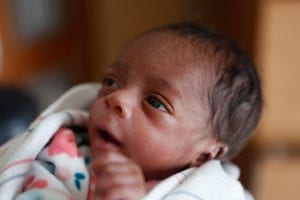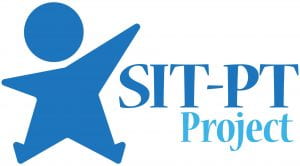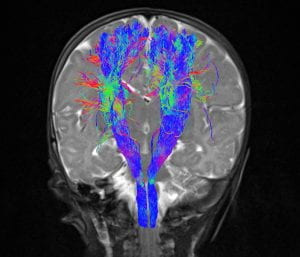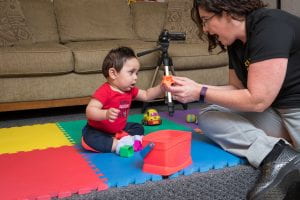SIT-PT
SIT-PT is a five-year research project aimed to promote children’s early development and readiness to learn.
The purpose of the SIT-PT study is to compare the effectiveness of two physical therapy interventions — MORE-PT and START-Play — while providing the same amount (dose) of intervention to participants in both groups.
Our research team will assess infants between 8 to 24 months old, with or at high risk of having cerebral palsy, and showing readiness skills for early sitting and reaching. Each infant will be randomized into a group and will receive the START-Play or the MORE-PT intervention for three months, with follow-up extending for 12 months from baseline. For more information please look at the study website.
Funding: NICHD 5R01HD101900
Telerehabilitation  early intervention to improve neurodevelopment outcomes of infants born preterm and their parents’ well being: a randomized clinical trial. TEDI-Prem was developed through a collaboration between the Dusing’s SPEEDI infant focused developmental intervention and Spittle and collaborators at the University of Melbourne e-prem telehealth parental mental health and well being program. Combined this tele-rehabilitation program will support both the parent and infants. The clinical trial will enroll over 300 infants in Victoria Australia starting in early 2021.
early intervention to improve neurodevelopment outcomes of infants born preterm and their parents’ well being: a randomized clinical trial. TEDI-Prem was developed through a collaboration between the Dusing’s SPEEDI infant focused developmental intervention and Spittle and collaborators at the University of Melbourne e-prem telehealth parental mental health and well being program. Combined this tele-rehabilitation program will support both the parent and infants. The clinical trial will enroll over 300 infants in Victoria Australia starting in early 2021.
Tummy Time Study
The purpose of this study is to measure learning abilities in infants between 2 to 6 months of age. This study requires infants to activate/ turn on a toy by raising their heads above a set threshold during tummy time. Prior work in full-term infants has demonstrated several benefits of positioning infants on their tummies. Research has indicated that the duration of tummy time during the early years (2-4 months of age) of life is associated with developmental milestones later in life. Motor and cognitive opportunities facilitated during tummy time play a pivotal role in preventing developmental delay during the later months (6-12 months) of infant life. Through this study, we aim to measure and reinforce infants’ learning abilities during tummy time using a tummy time toy.
Enhanced Exploration using Dynamic Body Weight Support
The goal is to explore if providing dynamic body weight support to the infant increases exploration during play. Infant will wear a harness connected to the Baby G device which will offload their weight. We will observe the infant play with and without use of this body weight support.
TEDI-PREM
Funding: Australian Government Health Department Medical Research Future Fund (MRFF). ACTRN12621000364875
Does Timing Matter? Supporting Play Exploration and Early Development Intervention

The purpose of this multi-site RCT is to evaluate the efficacy of Supporting Play Exploration and Developmental Intervention for infants born preterm. This proposal will evaluate efficacy in a cohort al born less than 29 weeks of gestation and compare the efficacy of the intervention started in the NICU or 3 months later.
Collaborative sites Virginia Commonwealth University / Children’s Hospital of Richmond at VCU including Physical Therapy, Biostatistics, Neonatalogy, Neurology and University of Virginia Neonatology and Developmental Pediatrics
NIH Formal title: Efficacy of Motor and Cognitive Intervention for Infants Born Preterm
Funding: Eunice Kennedy Shriver National Institute of Child Health and Development. NCT 03518736
SPEEDI2_BrainBehavior: Relationship between CNS integrity and a Parent-Delivered Developmental Intervention for infants born very preterm
This project is a supplement to the SPEEDI2 clinical trial and will only enroll infants who are already enrolled in the SPEEDI2 Trial.
Collaborations between Virginia Commonwealth University / Children’s Hospital of Richmond at VCU Physical Therapy, Biostatistics, Neonatalogy, Neurology
The purpose of this project is to evaluate the feasibility and collect pilot data on the efficacy of the SPEEDI intervention (funded by an NIH R01) with different types of brain injuries and the neuroplasticity changes following early and intensive intervention.
Funding Source: Endowment Fund from the VCU C. Kenneth and Dianne Wright Center for Clinical and Translational Research.
Play & Learning Across a Year (PLAY)
The purpose of this study is to develop a data set that focus on the behaviors of infants and mothers during natural activity in their homes. The data set will consist of fully transcribed and annotated videos, parent report questionnaires, video tours of the home, digital recordings of ambient noise, and detailed demographic information on 900+ infants and mothers from across the United States and Canada that will allow for collaborative analysis to a variety of research questions.
The project is led by Karen Adolph and Catherine Tamis-LeMonda of New York University and Rick Gilmore of The Pennsylvania State University.
VCU is a collaborating site
Funding Source: EUNICE KENNEDY SHRIVER NATIONAL INSTITUTE OF CHILD HEALTH & HUMAN DEVELOPMENT
Press release
Sitting Together And Reaching To Play

The purpose of the multi-center clinical trial is to evaluate the efficacy of targeted sitting and reaching intervention to improve developmental outcomes in young children with motor impairments. Collaborating research site include Duquesne University, Virginia Commonwealth University, University of Delaware, University of Washington, and University of Nebraska, Lincoln.
Funded by a grant from the Institute of Education Sciences, Special Education Research in the Department of Education.
Currently closed to enrollment. Primary outcome paper is here for videos and parent testimonials from the START_Play Study.
Funding: Institute of Educational Science. NCT 02593825
For a list of publication and presentations for this study click here .





